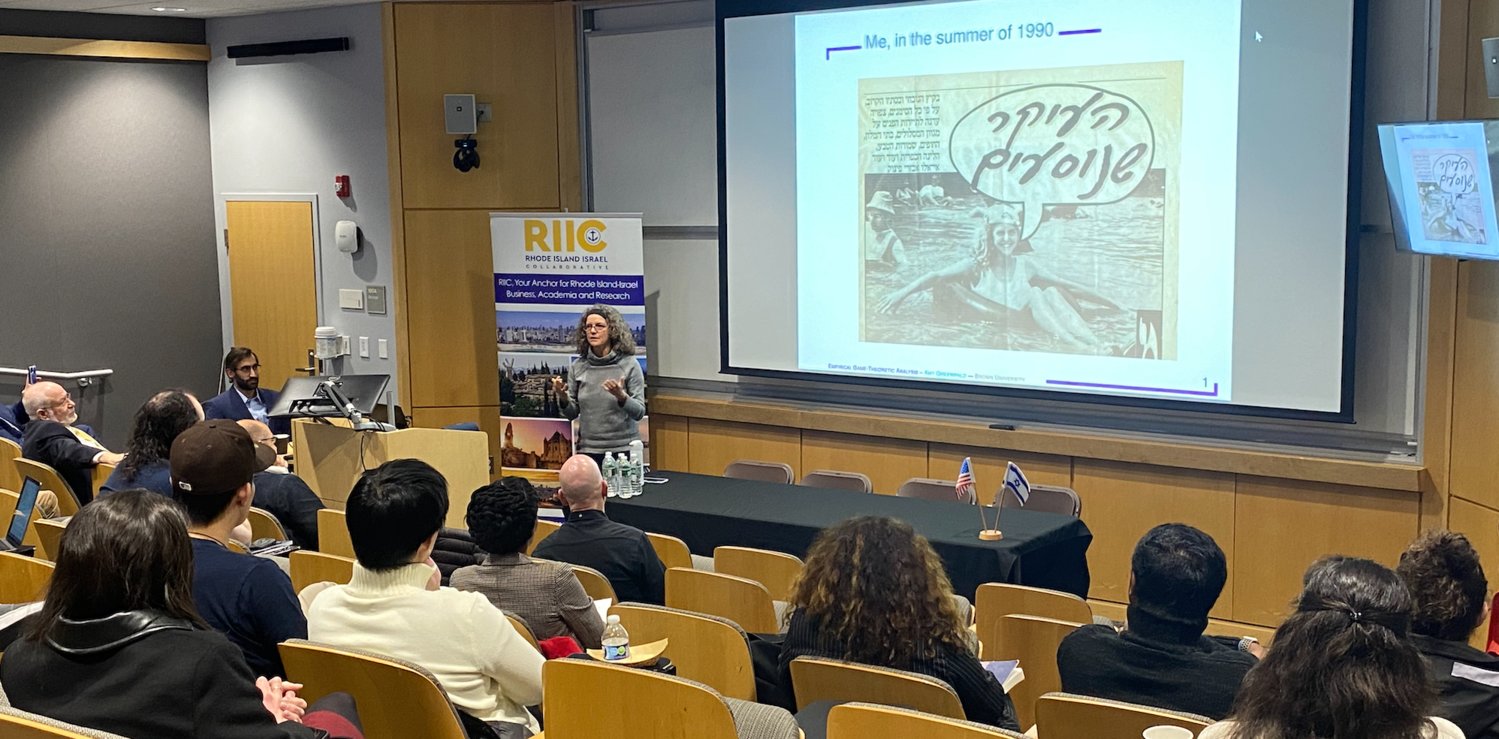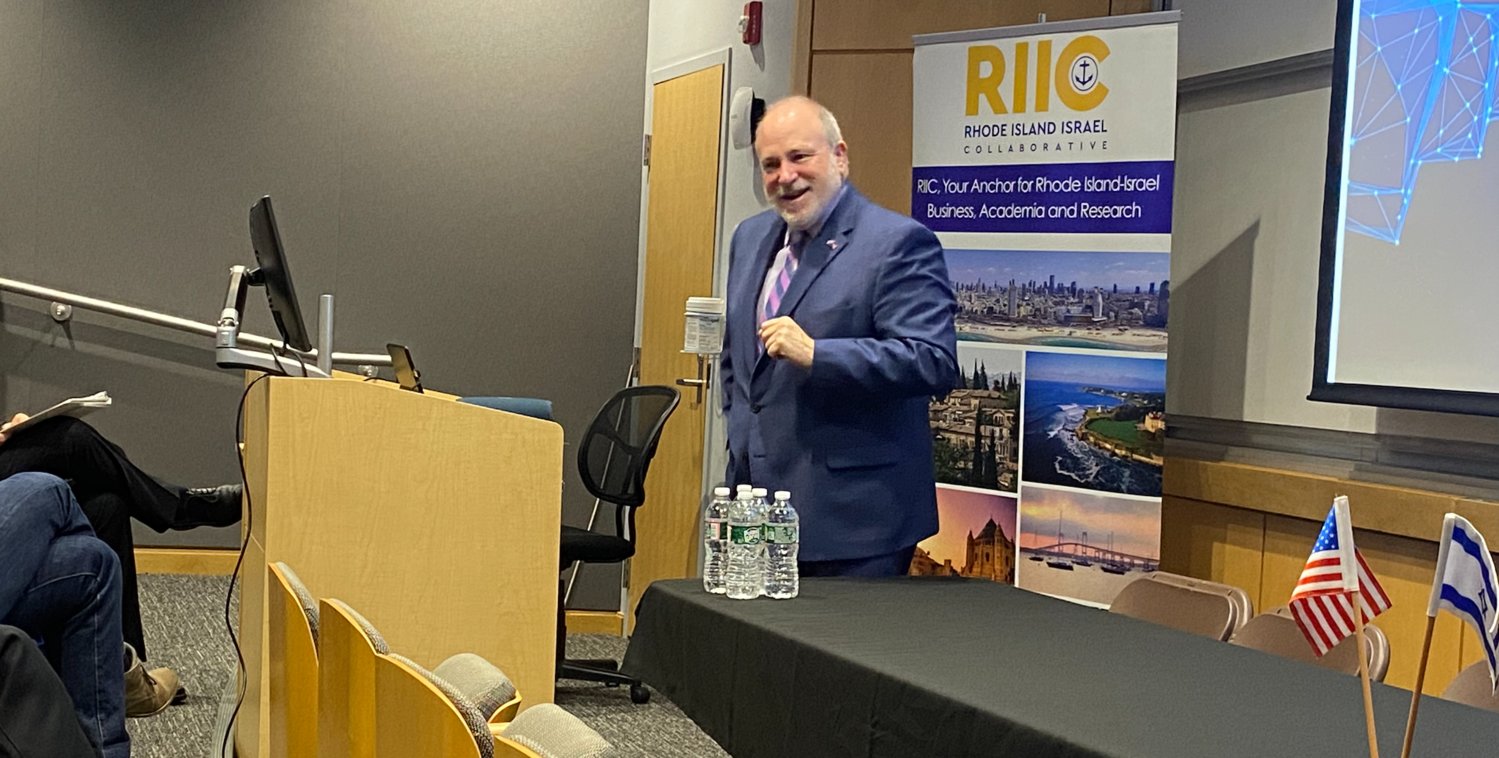RIIC conference takes a deep dive into AI
PROVIDENCE – The Rhode Island Israel Collaborative (RIIC), with Brown University’s Applied Mathematics and Computer Science departments, on Jan. 24 held its first conference on the accelerating development of artificial intelligence.
The six-hour conference brought together AI researchers from Rhode Island and Israel to discuss innovations and trends in the field.
“AI allows us to unlock our phones with face recognition, it makes self-driving cars a reality. It helps physicians with tumors and medical images. It really has had a tremendous effect already on our daily lives,” said Prof. Björn Sandstede, chair of applied mathematics at Brown University.
“AI also poses a lot of challenges,” Sandstede continued. “You don’t really understand how it works, because it’s a black box, it’s opaque. You can’t really rationalize the decisions, and there’s a lack of transparency and accountability inherent to these algorithms.”
Avi Nevel, CEO and founder of RIIC, said it was wonderful to hold an in-person conference, post-pandemic, especially when AI has been a constant in the news.
On Jan. 23, ChatGPT, a 2-month-old AI chatbot, received a B grade on a paper written for a class in the Wharton MBA Program, and passed the U.S. medical-licensing exam and bar exam – leading critics to raise concerns that it could soon put many white-collar workers out of a job.
But, “We still have yet to figure out how to manage the flood of AI-enabled disinformation and misinformation,” said Jill Pipher, Brown University vice president for research. “At Brown, machine learning and AI are really an important part of our research enterprise.”
Meron Reuben, the Israeli consul general to New England, spoke briefly about his hopes for AI in the future. He also talked about his late father, a neurosurgeon who kept his notes to himself or in his head.
“When he disappeared, that knowledge disappeared,” Reuben said. “Wouldn’t it be wonderful if that microchip of what he had learned would be able to be, if not transplanted, at least be looked into.”
Reuben said that when he was 17, he sat down with his grandmother to map out his entire family tree. He hopes that one day, AI can record memories and be a genealogist for families.
“I wouldn’t need to ask all the family members who’s who in the picture,” he said.
Israeli keynote speaker Regina Barzilay, a professor at MIT, spoke about her AI research into natural language processing, and applications for chemistry and oncology.
As for AI in Rhode Island, state Secretary of Commerce Liz Tanner appeared in a video message highlighting R.I.’s current innovations in the field. For example, the state is at the forefront of digital government, looking into blockchain technology to hold digital credentials, she said.
Rhode Island’s e-permitting system will be fully operational in all 39 cities and towns later this year – the first system in the country that allows for state processes to coordinate with municipal processes.
“This will create a streamlined experience for the applicant,” Tanner said.
R.I. Lt. Gov. Sabina Matos highlighted Gov. Dan McKee’s major life sciences development project. The plan is to build a 212,000-square-foot, seven-story building in Providence, funded in part by a $81.7 million grant from the Centers for Disease Control, to house Rhode Island’s new health lab, life and sciences labs for Brown University, and additional biotechnology space.
“Rhode Island is the birthplace of the [American] Industrial Revolution,” Matos said. “My belief is that now, with AI, we can play a large part in that role again.”
Adar Kahana, a data scientist at Brown University and Microsoft, was the moderator for the conference. He said that when he came to Rhode Island from Israel, he was amazed by the connections between two very small states that have such a large impact on the world.
“It’s a very small state with a huge innovation, a lot of developments that have been done in past years,” he said of Rhode Island.
Additional participants included Amy Greenwald, a professor of computer science at Brown University; Alexander Fleischmann, an associate professor of brain science at the Brown University/Weizmann Institute; Marco Alvarez, an associate professor and director of graduate studies in the computer science and statistics department at the University of Rhode Island; Govind Menon, a professor in applied mathematics at Brown; and Kira Radinsky, CEO and CTO at Diagnostic Robotics, whose U.S. headquarters is in East Providence.
“I think what’s great about this event is it brings people together, researchers from academia and from industry from Rhode Island and Israel, to talk about both the technical advances and the societal challenges that this [AI] poses,” Sandstede said. “This will stimulate discussions and collaboration that carry us to the future.”
SETH CHITWOOD (www.sethchitwood.com), of Barrington, is a features reporter for The Standard-Times, in New Bedford. He is also the creative director of the award-winning Angelwood Pictures production company.











